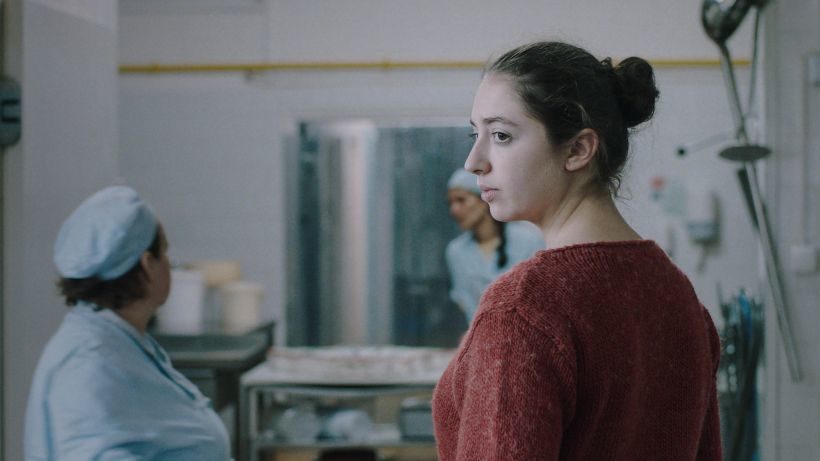
LAND OF GLORY – Winner German Short Film Award 2020 © Borbála Nagy / DFFB
On November 25, Borbála Nagy was awarded the German Short Film Award 2020 in the category short fiction film with a length of 10 to 30 minutes for her short film LAND OF GLORY. We talked to the director in advance.
shortfilm.de: You left Hungary in 2011 for political reasons and started studying at the DFFB in Berlin in 2012. LAND OF GLORY is your eighth short film and nominated for the German Short Film Award 2020. After MINDEN RENBEN (Everything Alright) it is already your second nomination for this award.
Would you say that the themes you deal with in your films have something in common? If so, how could you describe it? And what is the role of your Hungarian origin?
Borbála Nagy: After I emigrated to Germany, it took me years to understand that I cannot let go of Hungary not only as a home but also as a subject. From Berlin I gained a completely different perspective on Hungary. This distance is decisive. But I don’t want to deal with Hungary’s problems alone in my films. I am interested in politically relevant content, I want to reflect on our society in my films and ask questions so that the viewer is encouraged to think about certain aspects of our reality.
shortfilm.de: What role has the DFFB played in processing this content into moving images?
Borbála Nagy: It was and is a great gift to be able to study there. For me, the DFFB is a laboratory where I can work and experiment very freely. The time you get at the DFFB – compared to other film schools, we all study there for a relatively long time – is a great gift, and I really hope that it will continue to be so. It takes the pressure off the students because you don’t have to go out with a perfect film in your second year. This is exactly why the films that are made at the DFFB are so special. A colorful mixture of forms, genres and cultures.
shortfilm.de: You are preparing your first feature-length film NOTHING TO SEE HERE. What is it about? Does the topic fit into the series of your previous films? Or is it something completely different?
Borbála Nagy: The plot of NOTHING TO SEE HERE is based on true events: in 2018 someone posted a video on YouTube comparing the leadership of a Hungarian school with Hitler and his generals who had just lost the war. The video went viral and the consequences were so severe that in the end state institutions such as the police, the Ministry of Education and the Youth Welfare Office were involved, and as a result the life of at least one person was changed – a student who was forced to confess. The new film is thus thematically and stylistically the continuation and expansion of LAND OF GLORY: it draws the social portrait of a country and functions as a critique of two dysfunctional systems of power: politics and school.
shortfilm.de: What part does the short film format play for you in your professional development?
Borbála Nagy: Because of its length, the short fiction film has a different responsibility than the feature-length film – not only for financial and time reasons, but also dramaturgically. The short form therefore offers a platform for experimentation and learning. I have the feeling that viewers accept much more quickly than with a feature-length film when a short film does not always tell a story. The short film can be many things: a portrait, a feeling, an atmosphere. This is exactly why I learn a lot from this form, because it always reminds me that film is not only the story, but an audiovisual art form. And it is precisely this auditory and visual side that needs to be explored even more. Since every subject needs a certain form, I would not completely exclude making short films again after my debut.
shortfilm.de: Where do you see yourself professionally in 10 years? What kind of films will you be making then? In which country will you live?
Borbála Nagy: Berlin has become my second home, and I can imagine that in ten years I will still live here. But when life takes me in a different direction, I’m open to it too. I don’t see myself in Hungary, at least not until the political situation does not change and a humane social order develops. But no matter where, I hope that by then I will be busy with my third feature-length film. I also plan to combine filmmaking with my original profession, and teaching film. It is essential that people learn at a young age to enjoy films, but also art in general, so that art outside the mainstream is seen more often and understood more broadly in the future.
1 Trackback